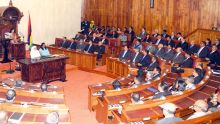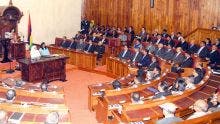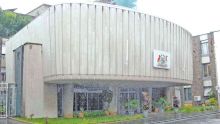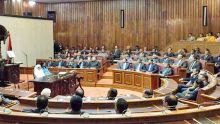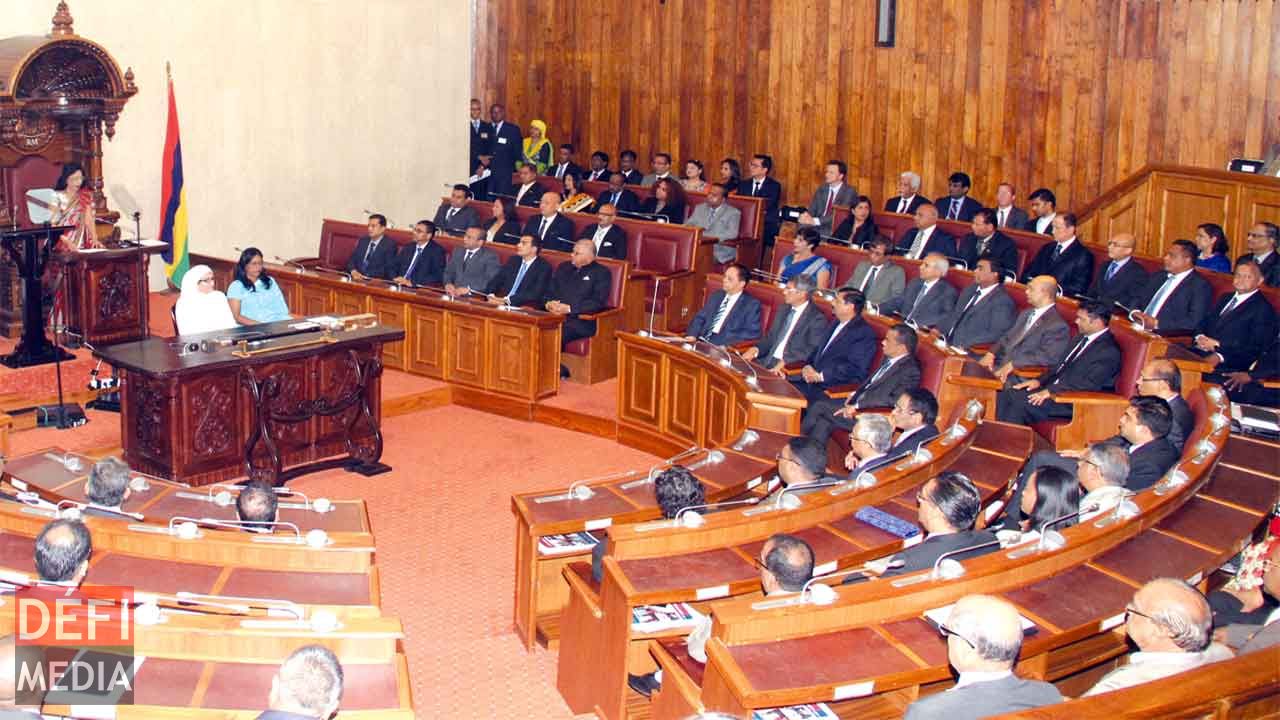
Since the second sitting of the National Assembly on 15 November 2016, 17 Bills were presented, 15 of them debated and passed with the exception of the Prosecution Commission Bill and the Constitution (Amendment) Bill which have been postponed for next year.
Publicité
The end of the current parliamentary session has been a roller coaster ride with the government splitting up over the introduction of a legislation proposing the creation of a Prosecution Commission and the government losing its ¾ majority. On Wednesday, following the walk-out of the PMSD whose members are now sitting in opposition, no debate on Prosecution Commission and on the Constitution (Amendment) Bills as they have been removed on the agenda and postponed for next year.
Wednesday’s agenda was amended with focus on the Sports Bill presented by the Minister of Youth and Sports, Yogida Sawminaden in second and third reading and was attended by six to seven speakers. The Sports Bill was finally voted with amendments together with the Non-Citizens (Property Restriction) Bill and the Sugar Industry Efficiency Bill.
The parliamentary session of Wednesday was marked by the return of MPs of the PMSD in the House with Xavier-Luc Duval as newly appointed leader of the opposition. But there was no Private Notice Question on the agenda. It was these two Bills – (Constitution (Amendment) Bill and Prosecution Commission Bill) – that were the main cause of the split and the departure of 11 members of the PMSD from the government.
The leader of the MMM, Paul Bérenger and the new leader of the opposition, Xavier-Luc Duval had requested that the debates on the two bills be deferred.
The Non Citizens (Property Restriction) Bill was presented by the Prime Minister to the House with comments from Pravind Jugnauth, Sudhir Seesungkur and Sangeet Fowdar from the majority benches and Ritesh Ramful, Shakeel Mohamed, and Kavi Ramano from the opposition. In his summing up, Prime Minister Sir Anerood Jugnauth underlined that the Bill has been introduced in order to implement an important budget measure with a view to boosting our economy, particularly in the construction sector.
“I wish to reassure the House that the Bill does not at all mean that we are going to give a blanket cover to any non-citizen who wishes to purchase apartments or office spaces in Mauritius. Both my Office and the Board of Investment have already put in place a well-coordinated mechanism for the close control and monitoring regarding the purchases of properties by non-citizens who are holders of Occupational and Resident Permits.”
With the enactment of the Bill, the existing procedures are going to be reinforced and will be applicable to any non-citizen who wants to invest in building complexes in Mauritius. The enhanced procedures will, among others, ensure that the funds being invested in Mauritius are not from illicit transactions or illegal sources. The concern expressed by a few real estate agencies regarding the possible soaring of prices in this sector, with the coming into force of this legislation, does not appear to be justified, according to the Prime Minister. It has been found that there is currently a surplus in the local market of unsold apartments and office spaces in the building complexes.
The main aim of this measure therefore is to offset this surplus by, in the first instance, targeting the 99% of the 5 600 Occupational and Resident Permit Holders, living and working in Mauritius, who are not owners of any local residential or business property. In the short-term, therefore, the BOI is expected to use the appropriate marketing strategy to sell around 300 of these housing units to the relevant group of potential buyers. In the longer-term the sale of apartments is expected to be around 100 units annually thereby giving a considerable boost to our economy.

Notre service WhatsApp. Vous êtes témoins d`un événement d`actualité ou d`une scène insolite? Envoyez-nous vos photos ou vidéos sur le 5 259 82 00 !















